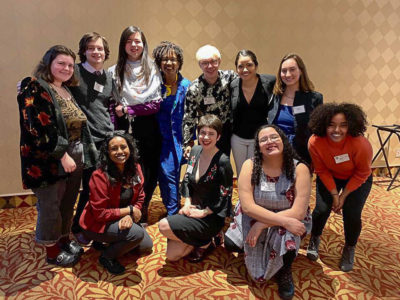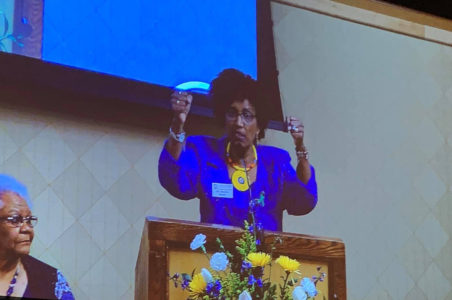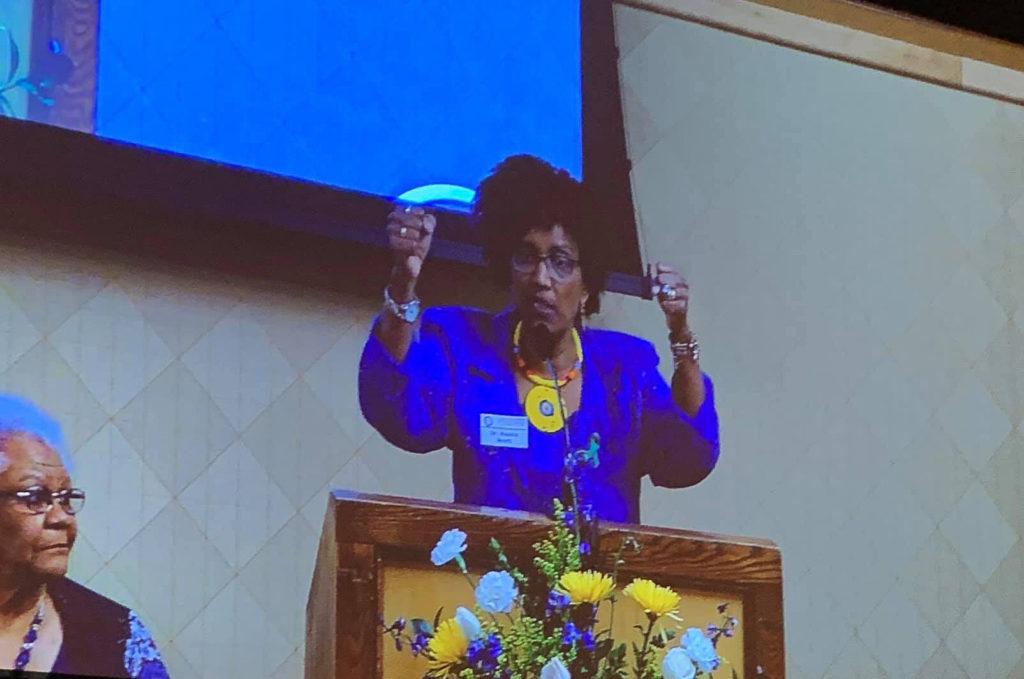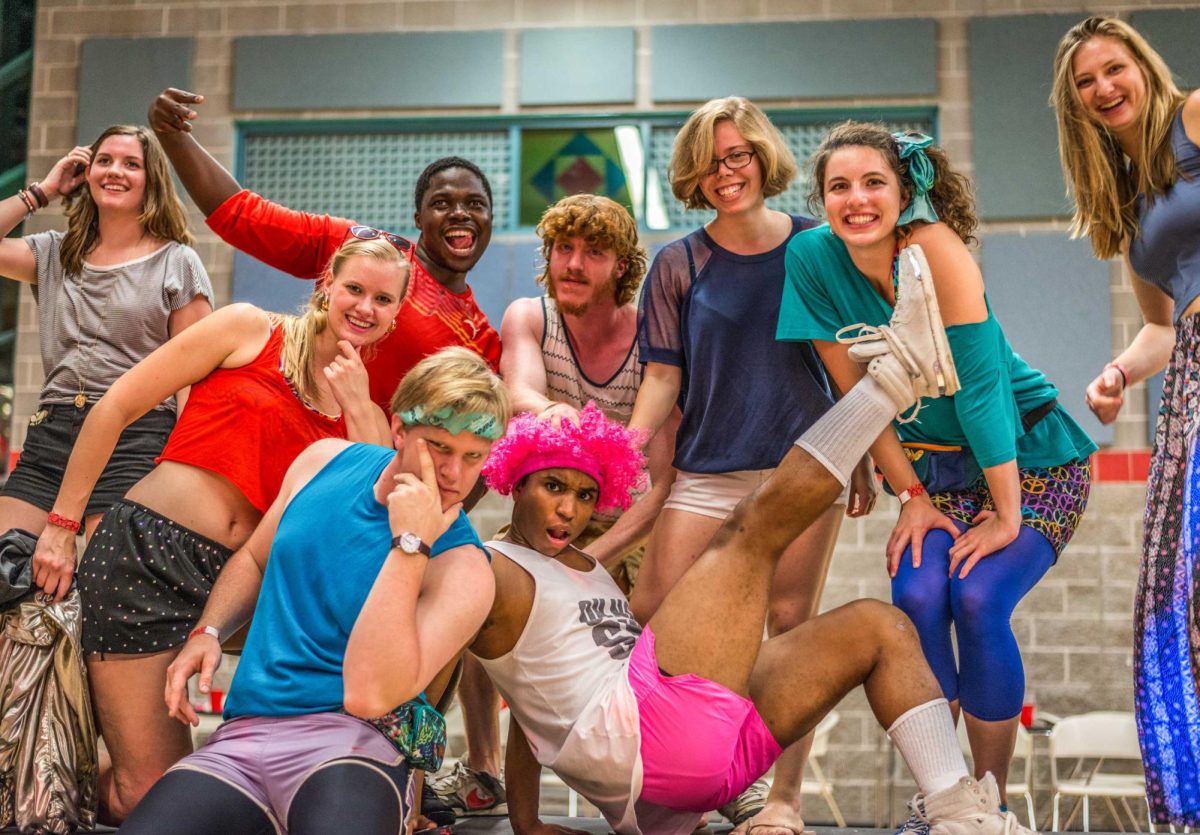By Sarah Licht
lichtsar@grinnell.edu
This February, Kesho Scott, associate professor of sociology and American studies, celebrated her 66th birthday at the Iowa House of Representatives. Each day in February, for the Legislative Black History Month Spotlight, members of the house chose to honor a prominent African-American at the start of the day’s session, and Representative Ruth Ann Gaines personally chose Scott to be her guest of honor.
“Just [from] the email and later conversation with Rep. Ruth Ann Gaines, I was honored,” said Scott.
Scott had come to mind when the committee decided who they were going to spotlight in Black History Month. Everyone agreed that she “had contributed so much to not only her [Scott’s] community but the state of Iowa.’”
The experience of entering the House was not only memorable but awe-inspiring to Scott. “Standing in the chamber where the decisions are made that impact the lives of Iowans was something different. I had a metamorphosis from a 12-year-old person,” Scott said, reflecting on how in awe she was of the architecture and beauty of the House.
“It really [hit] home to me why I have a Ph.D. in American studies,” she said.
Scott elaborated on how the study of our political structures is significant to her, so it was a great honor to hear how her contributions in the state have helped the members of the House make decisions on the subjects in which she has expertise.
As well as being the guest of honor at the House, the next day, Scott, her family and four of her students attended the annual dinner of the Ames Chapter of the National Association for the Advancement of Colored People, where Scott gave the keynote speech titled “Turning the Wheel of Justice Together!”
“Membership in the oldest civil rights organization in this country that was designed to improve the condition of the African American citizen, did they know what they were doing? Did they know how historical and important it was?” Scott said.
Scott also emphasized the role of all people in social justice and injustice. “The historical plight of the African-American as a minority, they have to be minoritized before they could be a minority,” Scott said. She then explained how the history of minoritization is for everyone to understand, not just African-Americans, and how everyone has to be responsible for changing the institutions in this country. Specifically, when the NAACP was first created, it was a multiracial organization where all groups came together to create social justice, so Scott stated that the same must happen today for real change to occur.
Scott celebrated the work that everyone does in this process. “I asked the first responders and the police department to stand up because they were taking on the questions of policing in Ames and looking at their old practices and evaluating their new practices.” Scott also acknowledged the educators and others that were involved in agencies that allowed for more diversity in Ames in her speech.
Through her speech, Scott showed how real work cannot begin if we do not work on ourselves first.
“If we do not first do personal work to unlearn all of the -ism’s, we cannot come to the table prepared to discuss the difficult questions,” said Scott.





















































